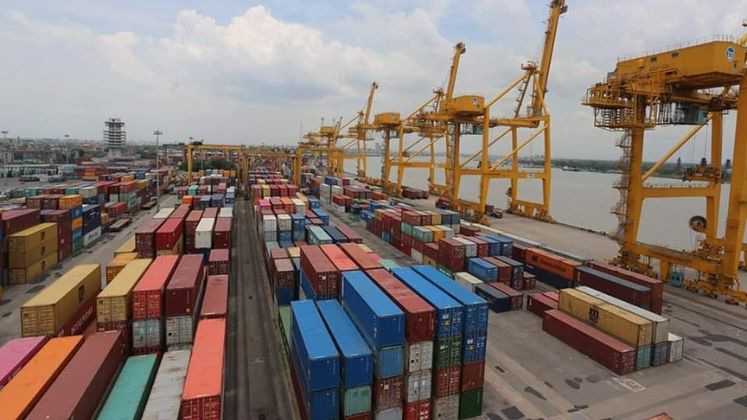
The Chittagong port, Bangladesh’s primary seaport, has been brought to a standstill following a five-day work stoppage by officials at the Chittagong Custom House. The ongoing strike has severely disrupted port operations, creating a backlog of over 4,000 containers and causing significant delays in customs processing.
Prior to the strike, approximately 2,000 bills of entry were submitted daily for imported goods. However, this number has been halved, raising concerns over declining customs revenue and mounting costs for traders. The backlog has caused the port yard to swell with containers—data shows that the number of TEUs (Twenty-Foot Equivalent Units) increased from 40,078 on 21th May to 44,211 by 19th May, an addition of over 4,100 containers in just a week.
According to the Chittagong Port Authority, the port’s capacity is 53,518 TEUs, with optimal operations maintained around 35,000 containers. The current buildup threatens to further hamper port activities and the broader supply chain, especially affecting perishable goods and raw materials vital to local industries.
Md Omar Faruk, secretary of the Chittagong Port Authority, acknowledged the impact, stating, “The pen-down strike has affected container deliveries. The number of undelivered containers has increased, and it will take a few more days for operations to return to normal.”
Meanwhile, the Customs House reports that despite the strike, assessments and clearance processes are continuing at a slower pace. Deputy Commissioner Saidul Islam noted that customs officials are working extended hours to clear consignments, and revenue collection has not yet been significantly impacted. From 13th to 18th May, the Customs House collected Taka 1,064 crore, down from Taka 1,536 crore during the same period last year, with sharp fluctuations in daily revenue and bills of entry submitted.
The data indicates a drastic decline in import activities during the strike days, with bills of entry dropping from an average of around 2,000 daily to as low as five on 16th May. Traders and C&F agents expressed frustration over prolonged delays, which are increasing costs due to storage fees, freight charges, and idle time for goods awaiting clearance.
Industry stakeholders are calling for a permanent resolution to the strike, warning that continued disruptions could severely impact imports, exports, and the overall industrial supply chain in Bangladesh.






